President
Juan Delgado, California State University, San Bernadino
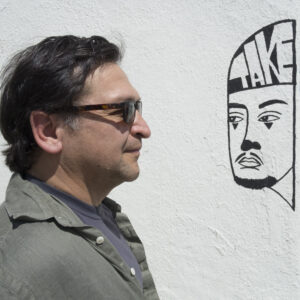
Juan Delgado is Professor Emeritus in the English Department at California State University, San Bernardino, where, in addition to his professorial duties, he chaired the English and Communication Studies Departments and served as the university’s interim provost. His collections of poetry include Green Web (1994), published by the University of Georgia Press and selected by poet Dara Weir for the Contemporary Poetry Prize; El Campo (1998), a collaboration with the Chicano painter Simon Silva and published by Capra Press; and Rush of Hands (2003), published by the University of Arizona Press. His most recent book, Vital Signs (2013),was a collaboration with photographer Thomas McGovern and won the Before Columbus Foundation’s American Book Award.
One can find a sample of his poetry and a critical essay on his last book at the Poetry Foundation: https://www.poetryfoundation.org/poets/juan-delgado. In recent years, he has presented his photopoetics and signage throughout southern California in museum exhibitions such as Más Allá del los Fencesat the Peppers Gallery in Redlands, 2017. Manos, Espaldas y Blossoms, a collaborative art project with Thomas McGovern featured their artwork and poetry in the groves of the California Citrus State Historical Park, 2018 (http://sweet-sour-citrus.org/projects/manos/). Sign Language, a mixed media exhibition at the CSUN Art Galleries, featured the collaborative work of McGovern and Delgado, and the artwork of Amando Lerma and Carlos Ramirez, aka “The Date Farmers” (https://www.csun.edu/mike-curb-arts-media-communication/art-galleries/events/sign-language).
Vice President
Peter Schulman, Old Dominion University
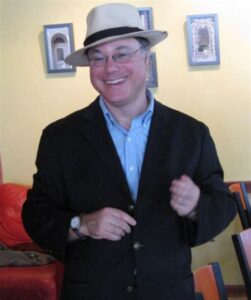
Peter Schulman is Professor of French and International Studies at Old Dominion University where he was just designated “Eminent Scholar.” He is the author of The Sunday of Fiction: The Modern French Eccentric as well as Le Dernier Livre du Siècle with Mischa Zabotin. He is currently co-editor in chief of an online journal of eco-criticism, Green Humanities and has co- edited the following books: The Marketing of Eros: Performance, Sexuality and Consumer Culture ; Chasing Esther: Jewish Expressions of Cultural Difference and Rhine Crossings: France and Germany in Love and War. He is currently working on a Kolkata-US poetry anthology, Nights at the Calcutta Café. He has translated Jules Verne’s last novel The Secret of Wilhelm Storitz; George Simenon’s The 13 Culprits as well as Marie Darrieussecq’s On Waves; Suburban Beauty from poet Jacques Reda; Adamah from poet Celine Zins; Ying Chen’s collection of haiku Impressions of Summer. His translation of Marie Nimier’s play Another Year, Another Christmas was performed by the Haberdasher Theater company in Columbus Ohio and New York City in November 2017. He co-hosts a podcast series on Contemporary Quebecois Writers and Filmmakers, and one on Contemporary French Musicians. He was Associate Producer on the 2019 documentary I Found it a the Video Store (dir. Robin Paez) which has screened at the Richmond and Austin Film Festivals. He currently organizes a yearly poetry festival between Norfolk, VA and Montreal, and a city-wide Night of Ideas in conjunction with the world-wide initiative sponsored by the French Cultural Services.
Second Vice-President
John D. Schwetman, University of Minnesota, Duluth

John D. Schwetman is an Associate Professor of English in the Department of English, Linguistics and Writing Studies at the University of Minnesota Duluth, where he specializes in twentieth-century US and world literatures. His article titled “’Shadowy Objects in Test Tubes’: Marking Grievance in Kazuo Ishiguro’s Never Let Me Go” came out in the November 2017 issue of Interdisciplinary Literary Studies. A chapter titled “’I Was in Italy . . . and I Spoke Italian’: Fighting Other People’s Battles in Hemingway’s A Farewell to Arms,” appeared in Hemingway in Northern Italy (U Press of Florida, 2017).
He is currently working on a book on twentieth-century US travel narrative titled Far from Home: Cosmopolitanism and the Unsettling of America in Twentieth-Century U. S. Travel Narrative. He received his Ph.D in English at the University of California, Irvine in 1999, he has taught and lived in Duluth ever since.
Executive Director
Craig Svonkin, Metropolitan State University of Denver

Craig Svonkin grew up Southern California, where he received his B.A. from USC, his M.A. from California State University, Los Angeles, and his Ph.D. from the University of California, Riverside. He is a writer of flash fiction and prose poetry fragments, a Professor of English at Metropolitan State University of Denver, and a dedicated fan of the Museum of Jurassic Technology, David Wilson’s meta-museum discussed in Craig’s essay “If Only L.A. Had a Soul: Spirituality and Wonder at the Museum of Jurassic Technology.” He has had the pleasure of serving as PAMLA’s Executive Director since March 2009.
Craig’s published essays include “Postmodern Documentary: The Return of the Magus on Video” (2016), “From Disneyland to Modesto: George Lucas and Walt Disney” (2012), “Manishevitz and Sake, the Kaddish and Sutras: Allen Ginsberg’s Spiritual Self-Othering” (2010), “A Southern California Boyhood in the Simu-Southland Shadows of Walt Disney’s Enchanted Tiki Room” (2011), “From Robert Lowell to Frank Bidart: Becoming the Other; Suiciding the White Male ‘Self’” (2008), and “Melville and the Bible: Moby-Dick; Or, The Whale, Multivocalism, & Plurality” (2001).
Craig is the co-editor of The Bloomsbury Handbook of Contemporary American Poetry (2023) with Steven Gould Axelrod. As part of the Bloomsbury Handbook, Craig conducted and edited (or co-conducted and edited) many interviews with poets and poetry scholars, as well as writing the essay “From Shingled Hippo to Gay Unicorn: Self-Othering in Bob Kaufman and Other Beats.” He has also co-authored “Introduction: The Metafamily” (2018, with Steven Gould Axelrod), “A New Parliament of Fouls: The 2015 Lion and the Unicorn Award for Excellence in North American Poetry” (with Lissa Paul and Kate Pendlebury), “Old Guard→Avant-Garde→ Kindergarde: The 2014 Lion and the Unicorn Award for Excellence in North American Poetry” (with Lissa Paul and Donelle Ruwe), “Outside the Inside the Box: The 2013 Lion and the Unicorn Award for Excellence in North American Poetry” (with Michael Joseph and Donelle Ruwe) and New Directions in American Literary Scholarship: 1980-2002 (with Emory Elliott), and co-edited the symposium “Why Comics Are and Are Not Picture Books” (with Charles Hatfield) and the special issue of Pacific Coast Philology (volume 53, no. 2, Fall 2018) on “The Metafamily” (with Steven Gould Axelrod).
Please email Craig Svonkin with any questions or suggestions about PAMLA: [email protected] (or feel free to call: 626-354-7526).
Pacific Coast Philology Editors
Richard Hishmeh, Palomar College
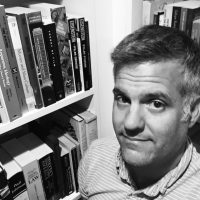
Richard Hishmeh‘s teaching and research interests include Rhetoric, American Literature, Poetry, and Film and Visual Culture. His scholarship has appeared in journals including, Modern Language Studies, The Journal of American Culture, and the Hemingway Review. Professor Hishmeh is co-editor of Pacific Coast Philology, the official journal of the Pacific Ancient and Modern Language Association (PAMLA), a regional branch of the Modern Language Association. He has served as a member of PAMLA’s Executive Committee (2014-2017), and he is the recipient of Palomar’s Faculty Senate Award for Scholarly and Professional Achievement, 2016. With Jason Spangler of Riverside City College, Hishmeh is co-author of the textbook, Writing Up: Reading and Writing for College Readiness (BVT 2016). His latest publication, a chapter entitled, “Claiming Their Place: Contemporary Arab American Poetry and Poetics,” is forthcoming in the Bloomsbury Handbook of Contemporary American Poetry (2022).
Martin Japtok, Palomar College
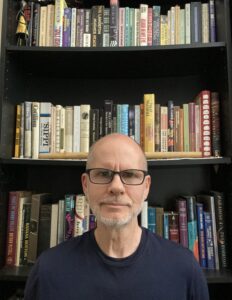
Martin Japtok received his M.A. degree in American Studies, British Studies, and Philosophy from the Johannes Gutenberg University in Mainz, Germany and his Ph.D. in English from the University of California, Davis. He is Professor of English and Humanities at Palomar College and co-editor of Pacific Coast Philology. His book Growing Up Ethnic: Nationalism and the Bildungsroman in African American and Jewish American Fiction appeared in 2005. He edited Postcolonial Perspectives on Women Writers from Africa, the Caribbean, and the U.S. (2003) and co-edited (with Rafiki Jenkins) Authentic Blackness/“Real” Blackness: Essays on the Meaning of Blackness in Literature and Culture (2011) and Human Contradictions in Octavia E. Butler’s Work (2020). He has also published in journals such as African American Review, MELUS, Amerikastudien/American Studies (Germany), The Southern Literary Journal, the Journal of Caribbean Literature, and The Journal of Foreign Languages and Cultures (China). In addition, he co-authored two composition texts, Inside Writing, 8th ed. (2015) and The Writer’s Response, 6th ed. (2017). When at West Virginia State University (1996-2004), he was elected Professor of the Year for three consecutive years from 2000-2003. In 2022, his essay “Colson Whitehead’s The Intuitionist, the Internet, and Techno-Utopianism” received the 2021 Weixlmann Prize from African American Review for the best essay about 20th and 21st century literature in that year.
Members at Large
Terms Expire 2024

Jerry Rafiki Jenkins, Palomar College
Jerry Rafiki Jenkins has a BA in Sociology and PhD in Literature from the University of California, San Diego, which he received in 2002. Rafiki is Professor of English at Palomar College in San Marcos, California, where he has taught courses on composition, critical thinking, Multicultural Studies, and African American literature and history. Rafiki is also a lecturer at San Diego State University, where he has taught courses on African American vampire fiction and representations of blackness in literature and culture. Rafiki’s research focuses on black speculative fiction and film, and his peer-reviewed articles appear in Screening Noir, African American Review, Journal of Children’s Literature, Science Fiction Studies (2022), and PAMLA’s Pacific Coast Philology. Rafiki is also the author of The Paradox of Blackness in African American Vampire Fiction (Ohio State UP, 2019), and he has co-edited, with Martin Japtok, Human Contradictions in Octavia E. Butler’s Work (Palgrave Macmillan, 2020) and Authentic Blackness/Real Blackness: Essays on the Meaning of Blackness in Literature and Culture (Peter Lang, 2011). Rafiki is currently completing a book-length manuscript on monstrosity in African American horror fiction.

James Lu, California Baptist University
James J. Lu received his PhD in English from Duke University in 1992. His publications include articles in the journals of MELUS, Biography, and Tamkang Review. He translated American author Edith Wharton’s novel The Age of Innocence from English to Chinese, published in 1986. Recently, he co-authored a book titled The Epistemological Construction of Critical Theory and Paradigms: American Horizon and Chinese Experience, to be published by Zhejiang University Press in 2022. Also forthcoming is an article titled “Two Tales of a City: An Ethnic and Cultural Study,” to be published in the journal Academic Prospect, volume 15 (ISSN #: 1936-1246), fall 2021, pp. 2-14.
James began his teaching career in 1989 as a graduate instructor at Duke University’s Writing Program where he taught for three years, followed by two years of teaching in the Department of Comparative Literature at Hamilton College in New York (1993-95), prior to his 26 years of teaching at California Baptist University (1995-present). At CBU, his administrative experiences include Interim Dean, College of Arts and Sciences (2009-2011); Associate Dean, College of Arts and Sciences (2012-2021); and Chair, Department of Modern Languages and Literature (2001-Present).
Terms Expire 2025

Dawn Dietrich, Western Washington University
Dawn Dietrich graduated with her Ph.D. from the University of Michigan and is currently Associate Professor of English at Western Washington University (WWU), where she engages in the multi-disciplinary field of Cultural Studies of Science and Technology with its intersections in the Digital Humanities. Dawn teaches a range of courses from Cybernetic Fiction: Narrative in the New Media Ecology to Post-Millennial Film, New Materialism, and Theories of Affect, offering classes in new media, film, experimental literature, and graphic narratives and comix. She has published in journals such as Film Quarterly, Contemporary Literature, and Word & Image: A Journal of Verbal/Visual Enquiry. Most recently, she is featured in the Special Issue of Pacific Coast Philology, “Ways of Seeing: Visuality, Visibility, and Vision,” guest edited by Andrea Gogrof (vol. 54, issue 2: 2019), with her essay, “’For America to Rise It’s a Matter of Black Lives/And We Gonna Free Them, so We can Free Us’: 13th and Social Justice Documentaries in the Age of ‘Fake News.’” In addition to directing the English graduate program and the University-wide Common Reading program (Western Reads) at WWU, Dawn has served on several non-profit boards, including the Pickford Film Center and the Lummi Island Heritage Land Trust. Engaging in participatory research within communities and collaborating on goals through a shared vision is something she values highly. This form of public “research and scholarship” happens collaboratively within a community, with rich opportunities for cross-cultural exchange, including working on tangible problems or goals that go beyond critique and have the ability to affect the material conditions of people and places.

Satoko Kakihara, California State University, Fullerton
Satoko Kakihara is Associate Professor of Japanese at California State University, Fullerton. She received her Ph.D. in Literature from University of California, San Diego, and her B.A. in English and Linguistics and M.A. in Linguistics from Stanford University. At CSUF, Satoko teaches courses on Japanese language, literature, and culture. At previous institutions (including Nagoya University in Japan), she also taught research methods in cultural studies, undergraduate writing, and English as a Second/Foreign Language. She has published in venues including the electronic journal of contemporary japanese studies, the Japanese Studies journal, and the CATESOL Journal. She has also contributed to such volumes as Teaching Postwar Japanese Fiction (forthcoming 2023), Culinary Nationalism in Asia (2019), Asia-Pacific Film Co-productions (2019), and Migrant Identities of “Creole Cosmopolitans” (2011). Her first book, Women’s Performative Writing and Identity Construction in the Japanese Empire, is forthcoming in 2022.
Terms Expire 2026

Jessica Lewis Luck, California State University, San Bernardino
Jessica Lewis Luck is Professor and Chair of the English Department at California State University San Bernardino where she teaches courses in poetry and poetics, American literature, literary theory, and disability studies. She has a PhD in English from Indiana University, which she received in 2006. Her book Poetics of Cognition: Thinking through Experimental Poems (University of Iowa Press, 2023) investigates the material effects of experimental poetics using new evidence emerging from cognitive science. An award-winning teacher at CSUSB, she has also published essays about pedagogy as well as disability poetry and poetics, with articles on Larry Eigner, Deaf poetry, the poetics of medical imaging, and an introduction to disability poetry in the new Bloomsbury Handbook of Contemporary Poetry (2023).
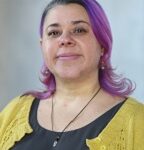
Sonia Barrios Tinoco, Seattle University
Sonia Barrios Tinoco is Associate Professor of Spanish and Chair of the Modern Languages and Cultures Department at Seattle University. She was born in Venezuela where she studied Literature at the Universidad Católica Andrés Bello, and then earned her Spanish Literature master’s Degree at Washington State University and a Hispanic Languages and Literatures Ph.D. from University of California, Berkeley. Her main area of study lies in marginalized and out of the law subjects, hence she has published essays such as “Reconceptualizing the ‘American Dream’ for Undocumented Immigrants: The Yearning for a Lost Sense of Family, Identity and Belonging”; “The Construction of Identity through Violence: Joaquín Murrieta’s Corrido,” “Maria Moura, a woman outlaw,” among others. She is also deeply invested in migration studies and for more than a decade has been teaching a course entitled “Buscando visa para un sueño”: Cultural products on (Ill)legal Immigration.
Graduate Student Representative
Term Expires 2025

Alexa Barger, University of California, Los Angeles
Alexa Barger is a 4th year PhD student in the Department of European Languages and Transcultural Studies at the University of California, Los Angeles. She specializes in contemporary French-language literatures of migration, particularly from the Francophone Caribbean and the African diaspora, with particular attention to the racialization and gendering of labor in contemporary literature. She is also interested in multilingualism and regional languages in France, and has studied Catalan, Occitan, and Antillean Creole. Alexa has presented twice at PAMLA and will serve as Graduate Student Representative for 2023-2025.
2024 Nominating Committee
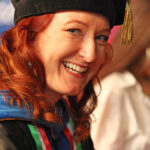
Yolanda Doub, California State University, Fresno
Yolanda A. Doub received her Ph.D. in Spanish from the University of Colorado, Boulder in 2005, with a specialization in 20th and 21st Century Spanish American Narrative. She is Professor of Spanish at California State University, Fresno, where she teaches undergraduate and graduate courses on the Spanish American Bildungsroman, Borges, Mexican culture, the Spanish American “Boom,” and major Hispanic novelists. Her scholarship focuses on coming-of-age stories in Latin American and Latinx literature and film, as well as Southern Cone and Mexican literature, adaptation studies, and film studies. Her published academic work includes Journeys of Formation: The Spanish American Bildungsroman (Peter Lang, 2010), essays on Bernice Zamora and Luis Alberto Urrea in Latinos: Great Lives from History (Salem, 2012), and articles in Hispanic Review and Symposium.
Additionally, President Juan Delgado and 2nd Vice President John Schwetman will be working alongside Yolanda on the 2024 Nominating Committee.
